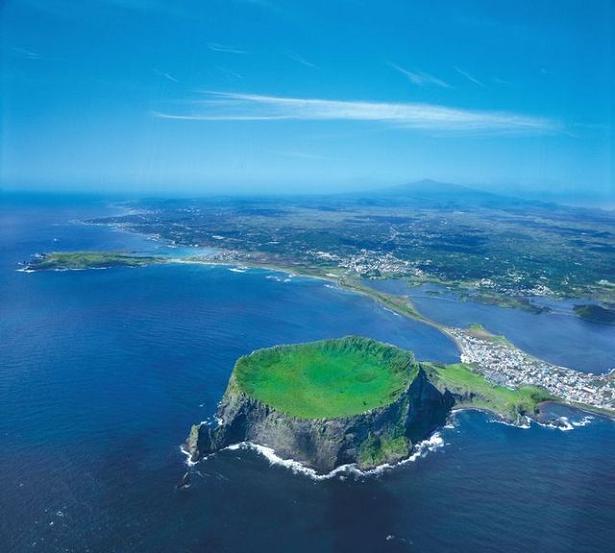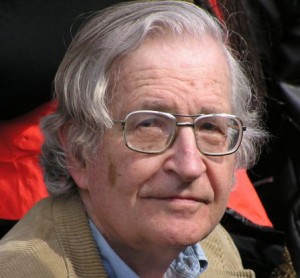Noam Chomsky: Why the “Island of World Peace” must be preserved Comment
Ideas, New in Ceasefire - Posted on Monday, October 31, 2011 14:00 - 2 Comments
By Noam Chomsky and Matthew Hoey and Matthew Hoey
 There is an island off the coast of South Korea – Jeju island – that is arguably the most idyllic on the planet. It is internationally recognized as the “Island of World Peace” and is home to more UNESCO World Natural Heritage sites than any single geographic location on earth.
There is an island off the coast of South Korea – Jeju island – that is arguably the most idyllic on the planet. It is internationally recognized as the “Island of World Peace” and is home to more UNESCO World Natural Heritage sites than any single geographic location on earth.
In the years leading up to the Korean War, it was the scene of virtual genocide, referred to in Korea as the Sasam, April 3 Uprising. One in five residents on the island was killed and 90% of the villages were burned to the ground. These barbaric crimes were committed by the South Korean police and military under a U.S. military mandate to begin what would be known later as the “scorch the earth campaign.” Today Jeju Island is again threatened by joint U.S.-South Korean militarisation and aggression.
Island residents and peace activists are resisting energetically, risking their freedom and lives to prevent the construction of a naval base on what many consider to be the most beautiful coastline on the island. This military base is to be home to both U.S. and South Korean naval vessels and a sea-based Aegis ballistic missile defense system.
The planned facility would have a capacity for two submarines, 20 large destroyers and up to two aircraft carriers. The purpose of which is to project force towards China and to provide a forward operating installation in the event of a military conflict between the U.S. and China. The location of this base is Gangjeong village, a small farming and fishing village that has reluctantly become the site of an epic battle for peace.
The last thing the world needs is a military confrontation between the U.S. and China. On that dreaded eventuality, there is no need to elaborate. In terms of its implications, what is now taking place on Jeju island counts as one of the most critical struggles against a potentially devastating war in Asia, and the deeply-rooted institutional structures that are driving the world towards even more bitter conflict than is raging in all too many places today.
It is important to become aware of what is happening on Jeju Island and to find ways to help the residents to prevent this very dangerous and destructive project. The consequences of losing the struggle to prevent the base construction might impact not only Asia but the United States and the rest of the world as well. The project is naturally seen by China as a threat to its national security. At the very least, it is likely to trigger confrontation and an arms race between South Korea and China, with the U.S. almost inevitably drawn in.
The immediate threat is to Jeju Island civilians, whose home was recently described in a South Korean daily as “the spearhead of the country’s defense line,” a line recklessly located approximately 500km from China.
We need not speculate about how the U.S. would react were China doing something similar near its coast.
The Gangjeong base resistance is a grassroots movement that goes well beyond militarisation and the severe threats it entails. Human rights, the environment and free speech are also at stake. Though small and remote, Gangjeong village should be viewed as an important battleground for all who believe in social justice worldwide.
 The dedicated non-violent resistance of the villagers has led to sweeping arrests specifically targeting filmmakers, bloggers, religious leaders and activists on social networking websites-and most notably, the leaders of the movement itself. One of those incarcerated right now is the democratically elected mayor of Gangjeong village, the leader of one of the most effective peace groups in Korea, and an amateur filmmaker. They have been held since a nonviolent rally where 45 men and women were arrested, including a Catholic priest.
The dedicated non-violent resistance of the villagers has led to sweeping arrests specifically targeting filmmakers, bloggers, religious leaders and activists on social networking websites-and most notably, the leaders of the movement itself. One of those incarcerated right now is the democratically elected mayor of Gangjeong village, the leader of one of the most effective peace groups in Korea, and an amateur filmmaker. They have been held since a nonviolent rally where 45 men and women were arrested, including a Catholic priest.
Basic democratic ideals are also under threat on the island. In the vote that authorized the military base at Gangjeong, 87 people-some of whom were reportedly bribed-were allowed to decide the fate of an entire village of 1,900 and a whole island of more than a half million people.
Islanders were told that the military base would double as a tourism hub for cruise ships, and that it would be the only means for large cruise ships to dock at the island, yielding commercial benefits. The claim is hardly credible, if only because at the same time, on Jeju’s north shore, a massive port expansion project has been underway and could be completed by the summer of 2012. It has already been announced that this new port will host one of the largest cruise liners in the world.
Gangjeong villagers are not deluded by this deceptive propaganda. They know full well what their future holds if their cry for peace is not heeded: an influx of South Korean and foreign soldiers, advanced armaments, and a world of suffering delivered to a small island that has already endured enough. And quite possibly the seeds for future devastating superpower conflict.
For more information on the Global Campaign to Save Jeju Island; Visit www.savejejuisland.org.
This essay is published in conjunction with The Hankyoreh, South Korea’s only non-corporate daily newspaper. For more on The Hankyoreh, read the exclusive essay in Ceasefire by its Executive Editor, Taesun Kwon.
2 Comments
Interview Noam Chomsky on Libya, the Arab spring, the cuts and more | Ceasefire Magazine
Activism: Powerful, Relevant, Necessary | Ceasefire Magazine
[…] fanaticism spreading through Pakistani civil society, from a small island community in South Korea resisting the construction of a military naval base to a pro-democracy youth movement in Sudan demanding their basic human rights and an end to the […]




[…] Click here for the latest Ceasefire article by Noam Chomsky. […]